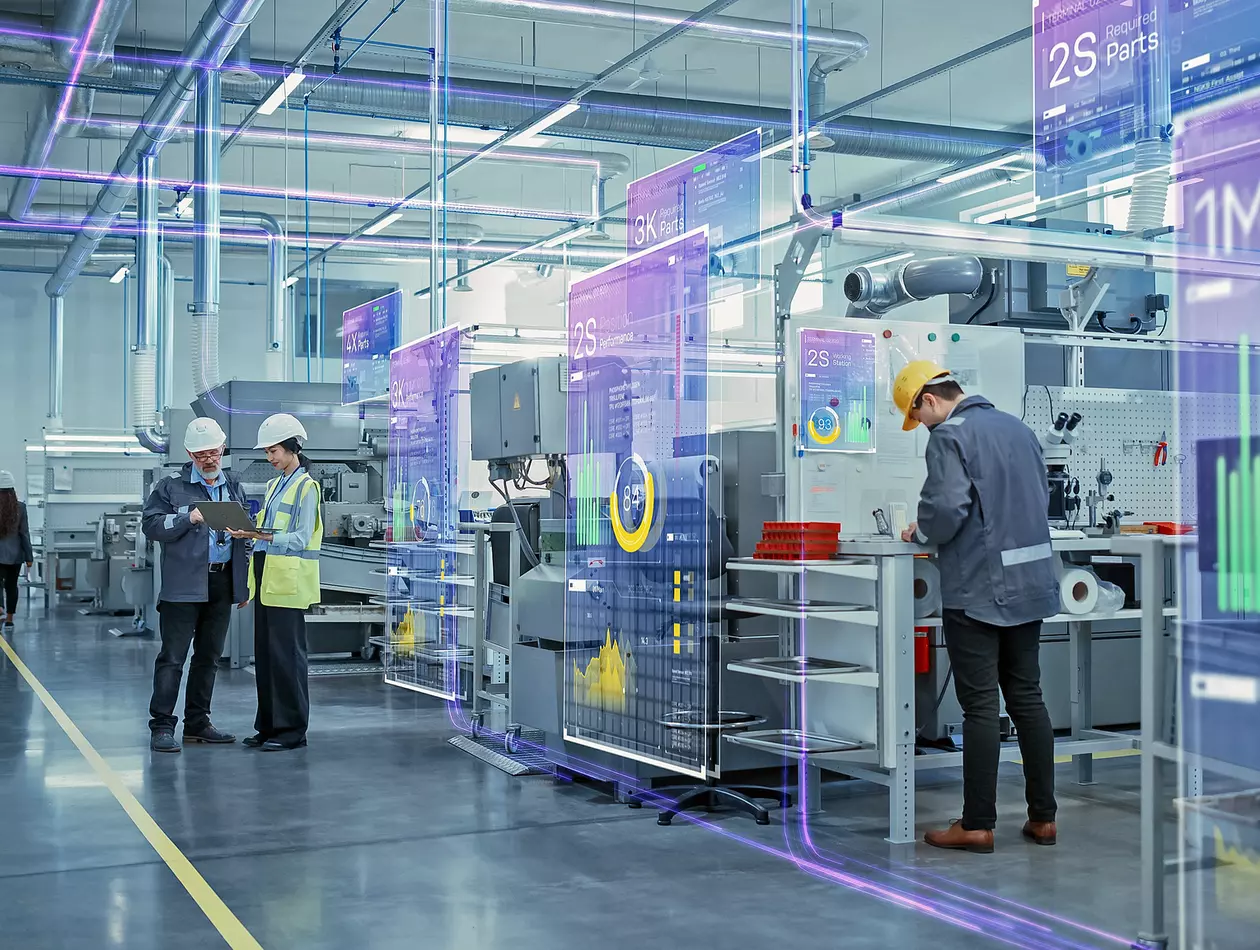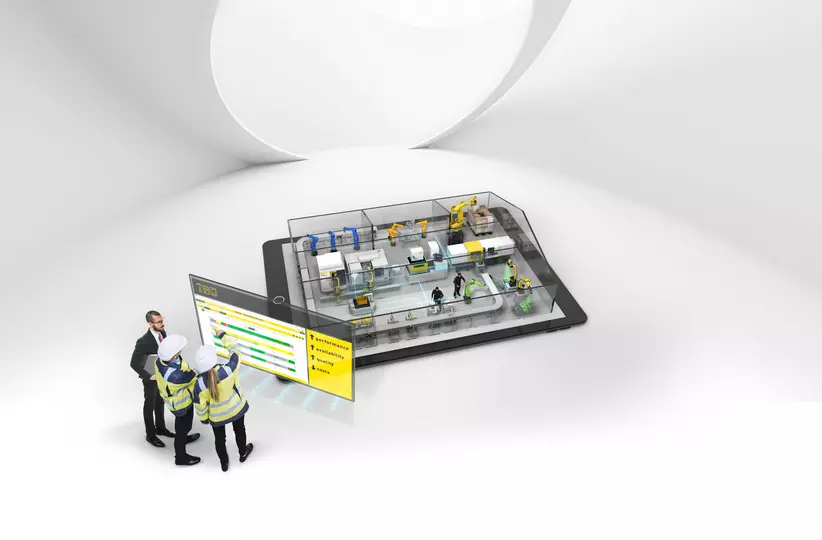

Soluções Smart Factory para aumentar a eficiência da sua produção
Redefina a excelência no fabrico com as soluções IoT da FANUC para a sua indústria.
Pretende aumentar a sua produtividade para o nível seguinte?
A FANUC reúne automação com análise avançada para conduzir a decisões de negócios mais inteligentes e rápidas para empresas industriais, independentemente do seu tamanho. Descubra produtos IIoT escaláveis que aumentam a eficiência de fabrico através de uma melhor qualidade de produção, desempenho, tempo de atividade e OEE. Torne os seus processos de produção mais eficientes graças às soluções IIoT da FANUC.

Explore a nossa gama de soluções IIoT e encontre a resposta perfeita para as suas necessidades de automação

Melhoria do desempenho
A IIoT permite-lhe recolher dados em tempo real e transformá-los em informações de negócio muito úteis.
Descubra como transformar os dados recolhidos do equipamento de produção em visões gerais claras do processo que ajudam a melhorar o desempenho do seu fabrico.

Melhoria do tempo de atividade
Uma avaria no chão de fábrica pode causar tempos de paragem e custos de produção significativos. No entanto, é possível detetar anomalias e receber notificações com antecedência para eliminar paragens de produção não planeadas. Descubra os diferentes produtos IIoT do nosso portefólio que permitem erradicar o tempo de inatividade.

Redução de custos
A análise e otimização de processos é uma parte fundamental da Indústria 4.0, em que as soluções IIoT podem ajudá-lo a reduzir os custos de produção e a melhorar a rentabilidade.
Saiba mais sobre os nossos produtos IIoT que permitem a redução de custos.

Monitorização da energia
A monitorização do consumo de energia permite o acompanhamento em tempo real da utilização de energia em toda a maquinaria, possibilita optimizações específicas e poupanças de custos e pode ser facilitada por soluções IoT.

Melhoria da qualidade
Os problemas de qualidade dos produtos podem ter um impacto negativo na sua rentabilidade, pelo que a recolha de dados em tempo real se torna fundamental quando a melhoria da qualidade é um objetivo primordial. Descubra os nossos produtos IIoT quer possibilitam a melhoria da qualidade.

Estabilidade do processo
A estabilidade é uma grande preocupação no fabrico, uma vez que muitas variações afectam cada processo, o que pode levar a problemas de qualidade e a interrupções.
Numa fábrica inteligente, a recolha, a monitorização e a análise dos dados de produção permitem uma maior repetibilidade.
Descubra que produtos IIoT do nosso portefólio podem acrescentar mais estabilidade ao seu processo de fabrico.

Rastreabilidade
As soluções IIoT permitem-lhe registar os parâmetros do processo para as peças fabricadas, proporcionando transparência na produção relativamente às condições do processo, à qualidade e aos materiais utilizados.
Explore os nossos produtos IIoT para apoiar a rastreabilidade do seu processo.

IoT industrial para serviços
Descubra como as soluções IIoT podem permitir o diagnóstico remoto de problemas e minimizar as deslocações físicas desnecessárias e as atribuições cegas, apoiando os técnicos de serviço no terreno na melhoria das taxas de reparação à primeira tentativa.
